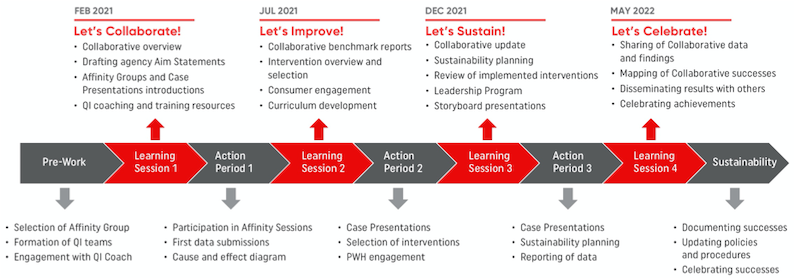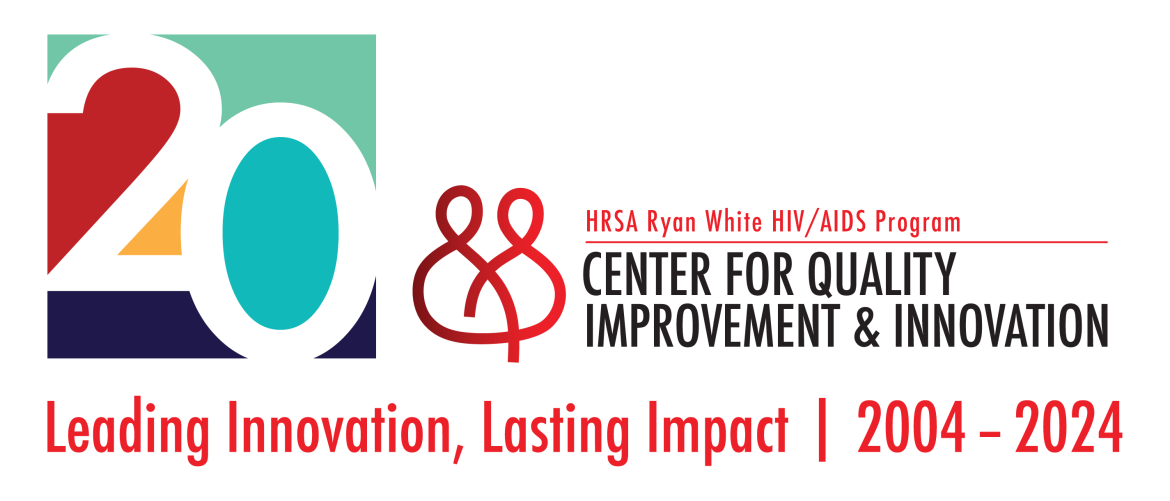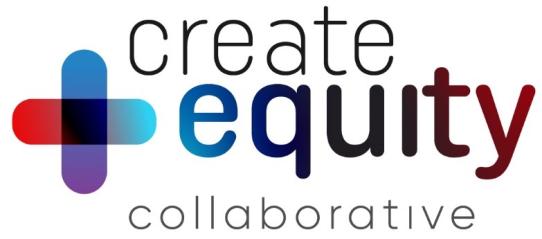Who Can Participate?
Any Ryan White HIV/AIDS Program (RWHAP)-funded recipient or subrecipient can apply to participate in the create+equity Collaborative, regardless of program type, setting, or geographic location.
CQII reviews all completed applications with the HIV/AIDS Bureau to select participants using pre-determined selection criteria. Each of the four Affinity Groups (Housing, Substance Use, Mental Health, and Age) is comprised of up to 25 agencies.
Multiple Interactions and Learning Opportunities with Your Peers
The create+equity Collaborative has created an ongoing series of Learning Session brief format videos for participants to share their perspectives on varied topics that have an impact on health equity.
- Tell us about your view of social determinants of health – what are they and how do they affect us?
- Tell us about an experience related to your Affinity Group’s social determinant of health that affected you or a patient in your care
- What impact can we have addressing barriers related to your Affinity Group’s social determinant of health have on us? One wish or hope for the collaborative.
- How does racial inequity impact HIV health outcomes?
- Please share an experience (own or others) of racism, structural racism, anti-blackness.
- What are the opportunities of this collaborative to make a difference to reduce the racial inequity gap? Hope going forward.
- Describe a time when you experienced distrust or disrespect in a clinic setting.
- Share your perspective - what does trust or respect look for you? What can we do to build trust and respect between patients and providers?
- How can quality improvement and/or the collaborative be a mechanism for building trust and demonstrating respect? Hope going forward.
- What was your involvement in the Collaborative?
- What has this Collaborative meant to you and/or your agency?
- What is one success in your own life or other patients as result of participation in Collaborative?
- How was equity created through this initiative? One hope going forward to continue to create equity.
What Do Collaborative Participants Do?
Participants help create a national community of learners from diverse program types, settings, and geographic locations. Agencies selected to join the create+equity Collaborative take part in Affinity Groups and have regular meetings with their assigned QI coaches, as they implement a quality improvement project focused on one of the four groups of interest.
The process is as follows:
- Once selected, participants choose one of the four subpopulations to focus their improvement work on and join the related Affinity Group. These virtual Affinity Group sessions (twice monthly, 60 minutes each) provide content updates, promote peer sharing among participants, and provide feedback on the implementation processes from both a peer and expert perspective.
- In addition to the Affinity Group sessions, participants are also assigned to a QI Group, led by one of CQII’s experienced QI Coaches. This arrangement allows for direct access to your QI Coach who will support your QI project development and implementation.
- Participants take part in four Learning Sessions during the 18-month project period.
- Key resources and tools are shared to maximize local use, i.e., disparities calculator, driver diagrams, evidenced-informed interventions, and much more.
create+equity Collaborative Timeline

How Will Participation Benefit Me?
In addition to improving the lives of your HIV patients, participation in the create+equity Collaborative will put your organization in line with national public health priorities, which emphasize disparity reduction to advance HIV care using quality improvement tools and methodologies.
Participation will help your agency in the following ways:
- Improve viral suppression rates.
- Align with HRSA HIV/AIDS Bureau clinical quality management expectations.
- Strengthen partnerships and with other RWHAP recipients and subrecipients locally and across the country.
- Increase quality improvement capacity of HIV providers and consumers.

